Ditapis dengan
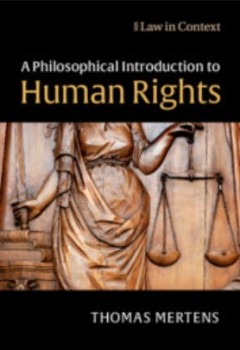
A Philosophical Introduction to Human Rights
While almost everyone has heard of human rights, few will have reflected in depth on what human rights are, where they originate from and what they mean. A Philosophical Introduction to Human Rights – accessibly written without being superficial – addresses these questions and provides a multifaceted introduction to legal philosophy. The point of departure is the famous 1948 Universal Decla…
- Edisi
- First Published
- ISBN/ISSN
- 978-1-108-41631-3
- Deskripsi Fisik
- xii + 292 pgs.; 25 cm.
- Judul Seri
- -
- No. Panggil
- 341.48 MER p

Human Rights and Poverty
- Edisi
- First Published
- ISBN/ISSN
- -
- Deskripsi Fisik
- 19 pgs.; 23 cm.
- Judul Seri
- -
- No. Panggil
- 291.1 SIN h
- Edisi
- First Published
- ISBN/ISSN
- -
- Deskripsi Fisik
- 19 pgs.; 23 cm.
- Judul Seri
- -
- No. Panggil
- 291.1 SIN h
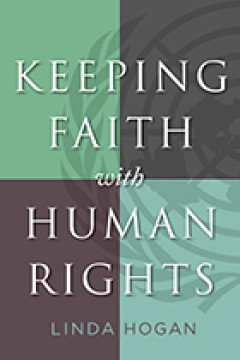
Keeping Faith with Human Rights
The human rights regime is one of modernity's great civilizing triumphs. From the formal promulgation of the Universal Declaration of Human Rights in 1948 to the subsequent embrace of this declaration by the newly independent states of Africa, human rights have emerged as the primary discourse of global politics and as an increasingly prominent category in the international and domestic legal s…
- Edisi
- Cetakan ke-1
- ISBN/ISSN
- 978-62616-232-7
- Deskripsi Fisik
- vii + 240 hlm.; 23 cm.
- Judul Seri
- -
- No. Panggil
- 323 HOG k
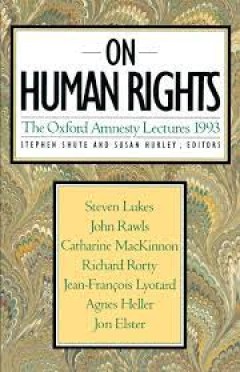
On Human Rights: The Oxford Amnesty Lectures 1993
Are there any human rights that apply to all women and all men in all cultures at all times? Can we ground human rights in an abstract rationality possessed by every human being? Or, as some philosophers have claimed, are attempts to ground human rights doomed to failure? Do human rights in any case need such grounding? On Human Rights, the second book in the Oxford Amnesty Lecture Series, pres…
- Edisi
- First Published
- ISBN/ISSN
- 0-465-05223-1
- Deskripsi Fisik
- ix + 262 pgs.; 21,5 cm.
- Judul Seri
- -
- No. Panggil
- 323 HUM h
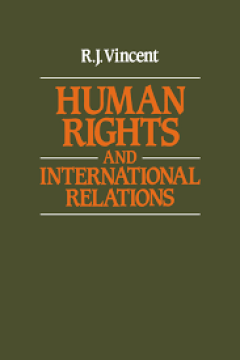
Human Rights and International Relations
- Edisi
- First Published
- ISBN/ISSN
- 0-521-32798-9
- Deskripsi Fisik
- viii + 186 pgs.; 22,5 cm.
- Judul Seri
- -
- No. Panggil
- 323.4 VIN h
- Edisi
- First Published
- ISBN/ISSN
- 0-521-32798-9
- Deskripsi Fisik
- viii + 186 pgs.; 22,5 cm.
- Judul Seri
- -
- No. Panggil
- 323.4 VIN h
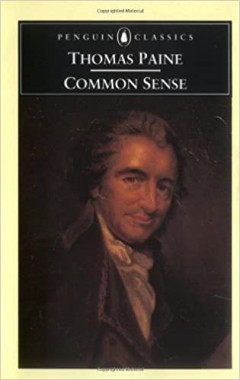
Common Sense
Published anonymously in 1776, the year of the American Declaration of Independence, Paine's Common Sense became an immediate bestseller, with fifty-six editions printed in that year alone. It was this pamphlet, more than any other factor, which helped to spark off the movement that established the independence of the United States. From his experience of revolutionary politics, Paine drew thos…
- Edisi
- -
- ISBN/ISSN
- 0-14-039016-2
- Deskripsi Fisik
- 128 hlm.; 19,6 cm
- Judul Seri
- -
- No. Panggil
- 320.5 PAI c

Human Rights Report Indonesia 1980
- Edisi
- Cetakan ke-1
- ISBN/ISSN
- -
- Deskripsi Fisik
- 120 pgs,; ils.; 19 cm.
- Judul Seri
- -
- No. Panggil
- 323.4 HUM h
- Edisi
- Cetakan ke-1
- ISBN/ISSN
- -
- Deskripsi Fisik
- 120 pgs,; ils.; 19 cm.
- Judul Seri
- -
- No. Panggil
- 323.4 HUM h
 Karya Umum
Karya Umum  Filsafat
Filsafat  Agama
Agama  Ilmu-ilmu Sosial
Ilmu-ilmu Sosial  Bahasa
Bahasa  Ilmu-ilmu Murni
Ilmu-ilmu Murni  Ilmu-ilmu Terapan
Ilmu-ilmu Terapan  Kesenian, Hiburan, dan Olahraga
Kesenian, Hiburan, dan Olahraga  Kesusastraan
Kesusastraan  Geografi dan Sejarah
Geografi dan Sejarah